By Lexi Reich
TACKLING FOOD INSECURITY in Colorado
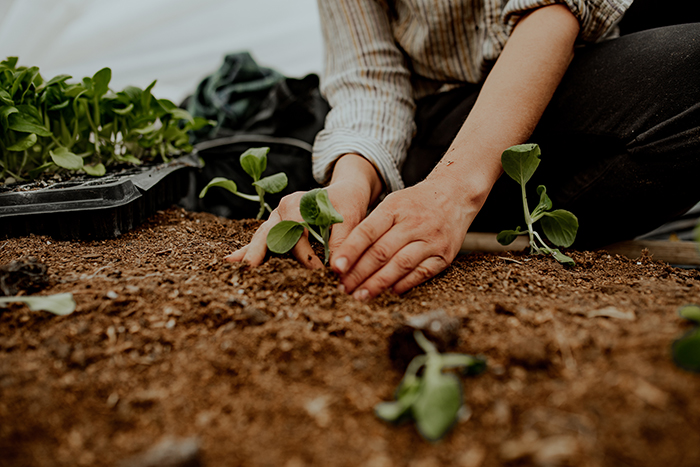
Photo courtesy of Mountain Roots Food Project
Every day, hundreds of thousands of Coloradans are forced to make the choice between purchasing groceries or other necessities, like medication.
Food insecurity is defined by the USDA as a lack of consistent and equitable access to healthy, safe and affordable foods. According to a 2021 survey by Hunger Free Colorado, one in three Coloradans lack reliable access to nutritious food. Plus, data shows participation in state food assistance programs has surged even beyond the challenges posed by the pandemic.
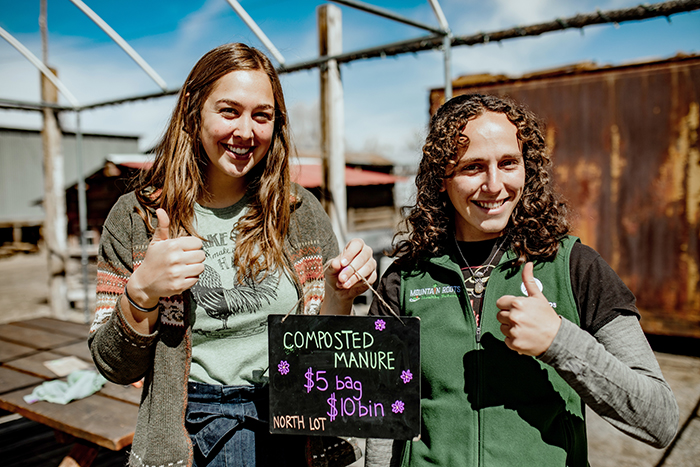
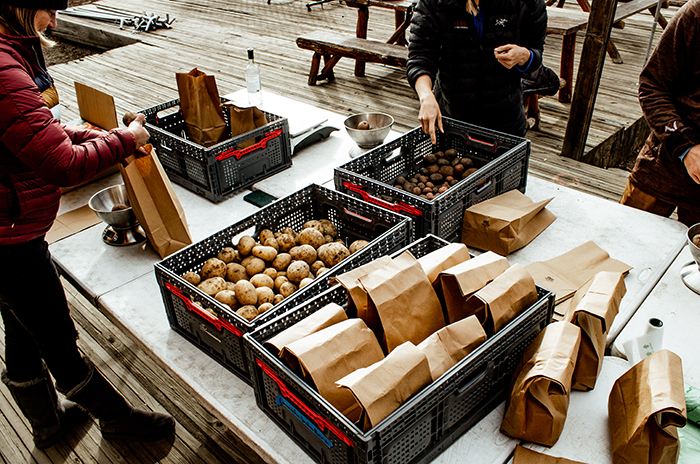
Compromised Communities
Ally Reeder believes access to a culturally acceptable and nutritionally adequate diet is the natural intersection of two things: social justice and farming. As an AmeriCorps service member, her dedication to those entities has found a perfect confluence in food security work.
“Food security is such a prevalent and indiscriminate issue that presents in so many different ways,” she says. “It is something that people experience daily and may not even recognize it.”
Food insecurity manifests in various forms, ranging from outright hunger to subtle dietary deficiencies. Today, rising costs across essential aspects of life, from groceries to healthcare, have exacerbated financial strains for many families. Food, unfortunately, becomes an easy expense to trim, leading to declined nutrition and heightened stress levels. Consequently, Food Bank of the Rockies reports one in nine children are experiencing food insecurity, which can hinder childhood development.
Yet it’s not merely a matter of financial scarcity, but also an issue of accessibility, especially evident in underserved areas designated as food deserts. Non-white and Latinx households experience the greatest disparities when it comes to putting food on the table. Reeder says addressing these multifaceted challenges necessitates a holistic approach, combining education, resource provision and community support.
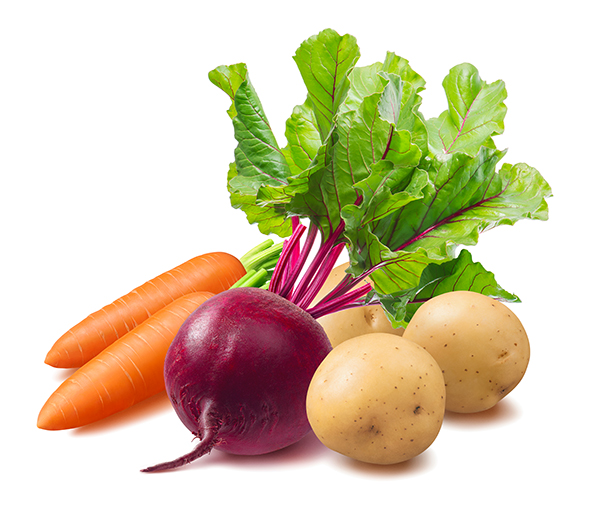
Sowing the Seeds
Reeder joined the Mountain Roots Food Project last July as an avenue to not only cultivate crops but also foster community bonds and address systemic issues affecting the state’s compromised communities.
“Our local food systems, and those who rely on it, are struggling,” says Mountain Roots executive director Holly Conn. “The number of farms and farmers continue to decrease in the U.S., and food insecurity levels are rising.”

Photo Courtesy of Mountain Roots Food Project
Based in Gunnison, Mountain Roots is spearheading initiatives to combat food insecurity in Colorado through diverse programming funded by grants and community donations. From school-based nutrition education to community cooking classes, the organization works to empower individuals with the knowledge and skills to make healthier food choices.
In 2023, Mountain Roots distributed 6,288 produce boxes, serving more than 250 individuals each week. Its team grew 1,500 pounds of food from community gardens and hosted 38 volunteers who contributed 414 hours within the food security program, where 22 percent of recipients belong to minority groups.
By facilitating access to locally sourced produce, instilling lifelong farming skills and acquainting children with local agriculture, Conn credits Mountain Roots for enabling individuals to obtain fresh food from their own yards and nearby communities, “which is better for our health, the economy and the planet,” she says. “Essentially, we’re getting back to our roots.”
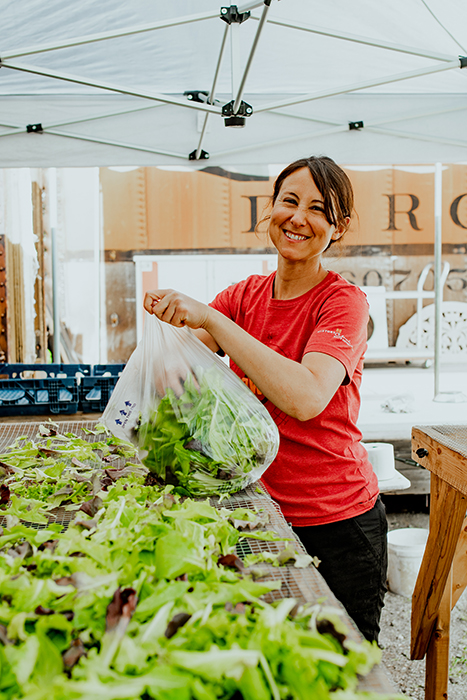
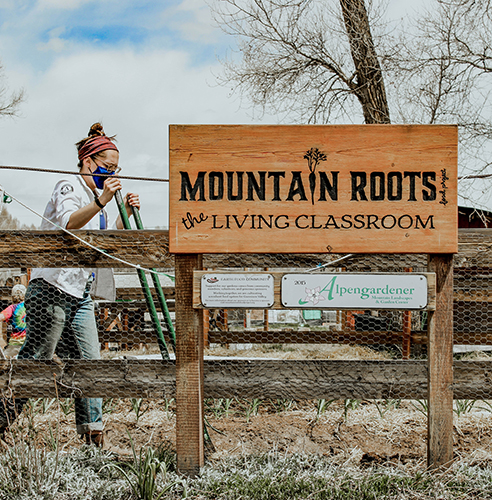
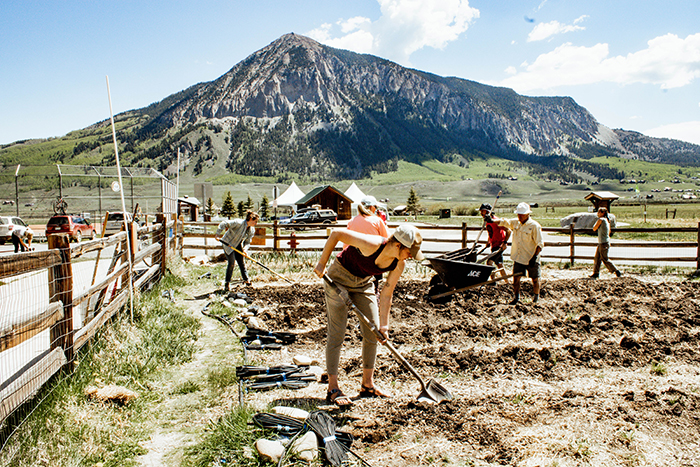
Photos Courtesy of Mountain Roots Food Project
Addressing the Root Cause
The Colorado Department of Agriculture established the Community Food Access program in the spring of 2022 to improve access to healthy food in communities that lack it. It now includes a refundable tax credit for small food retailers and family farms that make equipment purchases or incur delivery or distribution fees to increase access to healthy food in low income and underserved areas
of Colorado.
The state government also supports programs like Colorado Proud, which helps consumers recognize products made, grown and raised in Colorado. The database features a community of food-related businesses, with regional favorites like Palisade peach growers. The idea is to stimulate the local economy while promoting fresh food and helping the environment.
In the pursuit of food security, those on the ground emphasize that awareness and education are as crucial as direct assistance.
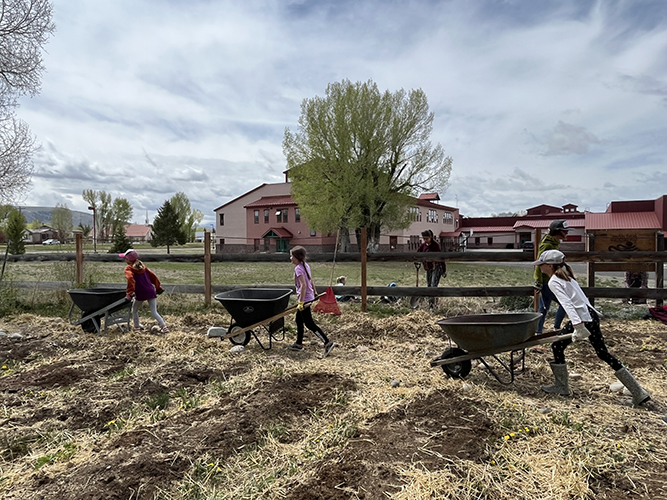
Photos Courtesy of Mountain Roots Food Project
“If [a family doesn’t] have access to a kitchen, find an alternative such as a crockpot that would allow them to prepare meals,” Reeder says. “Support local food pantries and supply them with more than just canned goods, but actually nutrient-dense items like fresh produce, nuts and whole foods.”
Community-led nonprofits like The GrowHaus specialize in serving Denver’s Latinx community with culturally appropriate ingredients they’ll actually use, like rice, beans, tortillas and Maseca (corn flour). Both The GrowHaus and Mountain Roots provide free produce boxes to ensure nutritious food reaches those in need without imposing income qualifications.
“Food security interests me because it affects everyone that eats,” Reeder says. “We hope to improve education and awareness surrounding this issue by addressing food security from more than just a ‘solving hunger’ perspective, but also continuing to educate about nutrition and working to improve equitable access to nutritious food.”

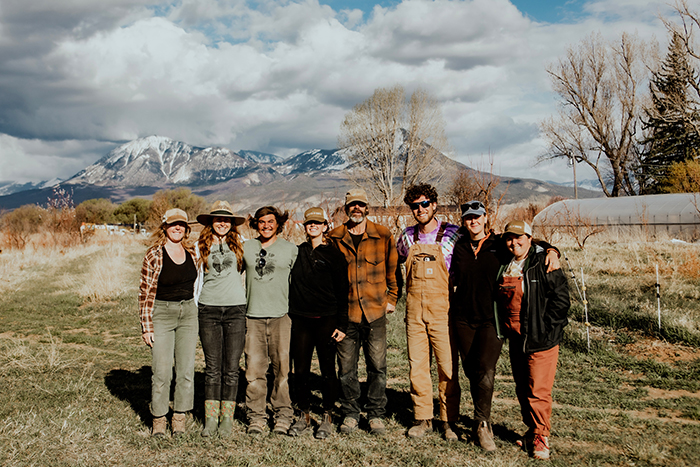
Photos Courtesy of Mountain Roots Food Project
Want to help? Start by contacting these local resources.
Mountain Roots Food Project
mountainrootsfoodproject.org
Colorado Proud
coloradoproud.com
The GrowHaus
thegrowhaus.org


